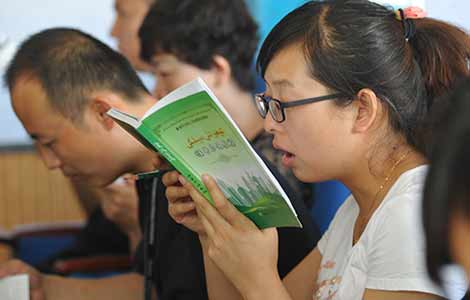Record fines herald healthy market economy
Updated: 2013-08-08 09:31
(Xinhua)
|
|||||||||||
BEIJING -- Record high penalties imposed on foreign baby formula makers have once again highlighted China's unswerving stance in guarding against malpractices for a healthier market economy.
Chinese authorities have issued fines totaling 670 million yuan ($108 million) for six baby formula companies operating on the mainland following an anti-trust probe, the largest fines ever imposed for anti-trust infringements.
Wednesday's verdict culminated the country's unremitting efforts in safeguarding the rights of enterprises to have free market competition since the enactment of its first anti-monopoly law in 2007.
On Jan 4, 2013, the country's top economic planner ordered Samsung, LG and four Taiwan markers of LCD display screens to pay a fine totalling 353 million yuan for price-fixing.
About six weeks later, the country's alcohol makers Kweichou Moutai Co Ltd and Wuliangye Yibin Co Ltd paid the heavy price of 449 million yuan for their involvement in price monopoly.
Competition is indispensable for a healthy market economy as it spurs players to constantly pursue better products at lower costs. On the contrary, competition stalls when one or a few companies corner the market, which will inevitably hurt the rights of consumers and necessary market rivals in the long run.
In raising the prices of their dairy products to exorbitant levels through illegal means, these market perpetrators have misplaced the trust of Chinese customers. Moreover, their heady pursuit of gains through the violation of laws have boomeranged on themselves and impaired their own hard-won reputations.
While China has demonstrated a consistency in its intolerance of monopolistic practices, the country has also exhibited great dexterity in handling the probe with its differentiated treatment of the companies being investigated.
In contrast to the hefty penalty the country meted out to Biostime, Mead Johnson, Dumex, Abbott, Friesland and Fonterra, three companies including Wyeth, Beingmate and Meiji received an exemption from punishment for their active cooperation and self-rectification measures during the probe.
According to China's anti-monopoly law, fines for a company range from 1 percent to 10 percent of its total revenue in the previous year, providing law enforcement with ample administrative discretion rights.
Since China initiated its reform and opening-up policy over three decades ago, the country has made great strides in the establishment and improvement of the market economy through herculean efforts, determination and wisdom.
Last month, Chinese authorities probed into GSK China for its suspected bribery and tax-related violations, making it part of the country's business climate clean-up.
The country's stance proves firm in promoting lawful and robust market competition that is conducive for a healthy economy and welfare of consumers.
All the market players should respect and abide by the rules instead of navel-gazing at their own short-term gains as that will ruin the soil for sustainable growth.
Related Stories
Dairy firms hit with fines 2013-08-08 08:06
Price-fixing fine adds to Fonterra trouble 2013-08-07 14:43
China issues record fines to formula firms 2013-08-07 11:10
Moutai, Wuliangye hit with heavy fines: report 2013-03-14 20:46
Moutai and Wuliangye pay record joint price-fixing fine 2013-03-15 16:00
Today's Top News
EU to continue anti-subsidy solar probe
China continues probes into wine from the EU
Exports, spending 'to ebb'
Dairy firms hit with fines
Obama cancels meeting with Putin
Sino-US trade gap narrows
AT&T ready for disaster recovery
China helps out energy-starved Pakistan
Hot Topics
Lunar probe , China growth forecasts, Emission rules get tougher, China seen through 'colored lens', International board,
Editor's Picks

|

|

|

|

|

|





